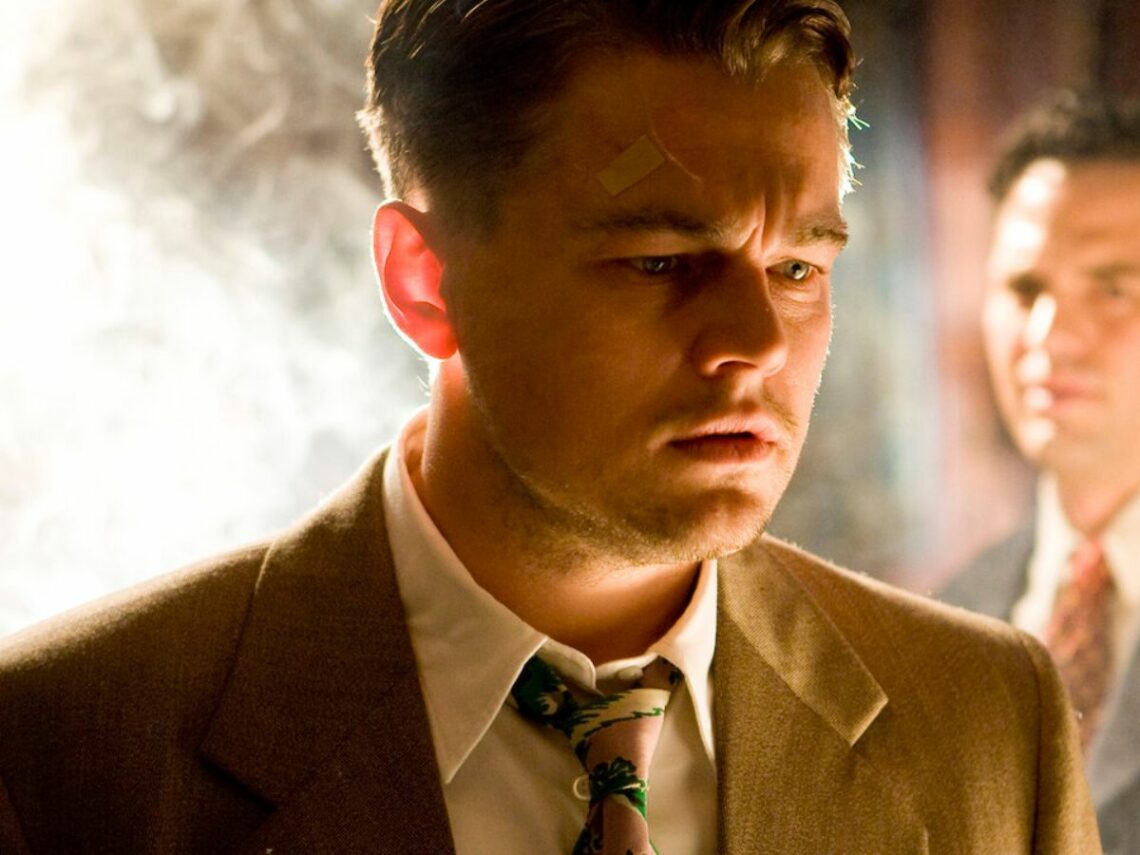There are thousands of new titles on Netflix for you to dive into when scrolling through the streaming service. However, there is one classic movie from Martin Scorsese that deserves your attention. Shutter Island starring Leonardo DiCaprio, Mark Ruffalo, Ben Kingsley and Michelle Williams, is one of the filmmaker’s best. But perhaps what makes it better than most is the unusual ending.
Stitched together by a dark atmosphere and ambiguity at every corner, Shutter Island is a complex and brain-busting psychological thriller directed by acclaimed filmmaker Scorsese. The film stars DiCaprio as Deputy US Marshal Edward ‘Teddy’ Daniels as he investigates a psychiatric facility where a patient has disappeared.
The 2010 neo-noir film also stars Mart Ruffalo as Daniels’ partner, Ben Kingsley as the lead psychiatrist, Max von Sydow as a doctor, and Michelle Williams as Daniels’ wife. A resounding success both critically and commercially, Scorsese’s thriller turned an $80million budget into $294.8million at the box office, solidifying its position as one of the best movies of the year.
Shutter Island’s plot and style elevate its analysis as a puzzle, something that forces audiences to re-watch with an active cognition to situate and make sense of its many complex clues that thread the entire mystery together. These layered responses derive from the film’s confusing plot-twist ending, which showcases an utter immersion in the protagonist’s psyche. Shutter Island concludes with Daniels and the audience shocked to discover he has constructed an entirely false identity as the investigator to ease the painful reality that he murdered his wife after she killed their children.
Following the reveal that he will be lobotomised, Daniels upkeeps the persona of an investigator working on a psychological mystery rather than the one in his psyche. He then asks Ruffalo, his doctor, if it is worse “to live as a monster, or to die as a good man?” before being taken to be lobotomised.
The ending is as shocking and mindblowing as it is upsetting and disturbing, as this man audiences have been aligned with and rooting for is in utter distress. “This is the most challenging one to date for me. Physically – yes, but emotionally more so,” DiCaprio shared with The Guardian. “It was the nature of the material. It was obviously a complex jigsaw puzzle, and it was surprising for both of us at times, and it really shocked us.” Scorsese’s conclusion, written by screenwriter Laeta Kalogridis and adapted from the 2003 novel of the same name by Dennis Lehane, is complicated as it explains various plot events yet snatches closure away cruelly.
This stealing of closure resides within the thematic concept of reality and illusion, battling for the most screen time and confusing audiences, accentuating psychological genre codes. One interpretation of Shutter Island’s ending signals time, delusion, escapism and mental illnesses as isolated values brought together to create genre-based meaning. Daniels clearly cannot let the past go, but in such a powerful way, he has to construct walls and lose himself to a mental disorder to escape from the pain. He can’t face his past just as much as he can’t forget it.
Additional analysis is invited by the brilliantly written and executed question: “is it worse to live as a monster or to die as a good man?” Here, the thematic values mentioned in the first interpretation become conjoined to questions of morality and humanity. After being given the context of Daniels’ past as splintering with what we have understood about the previous plot, we are asked to dissect this debate, being made to prioritise death over a moral compass or vice versa. This significant line upholds the film’s tone and messaging and harmonises its presence of psychology with philosophy as two complementing, or many juxtaposing, scopes: scientific and symbolic.
Shutter Island is a brilliant and ideal watch for any viewer who adores depictions of the human psyche and unravelling mysteries. As a terrific example of its genre, its style, values and overall consistency attract audiences repeatedly, echoing other puzzling movies such as David Fincher’s Fight Club and Christopher Nolan’s Inception.
Watch Shutter Island on Netflix now.
